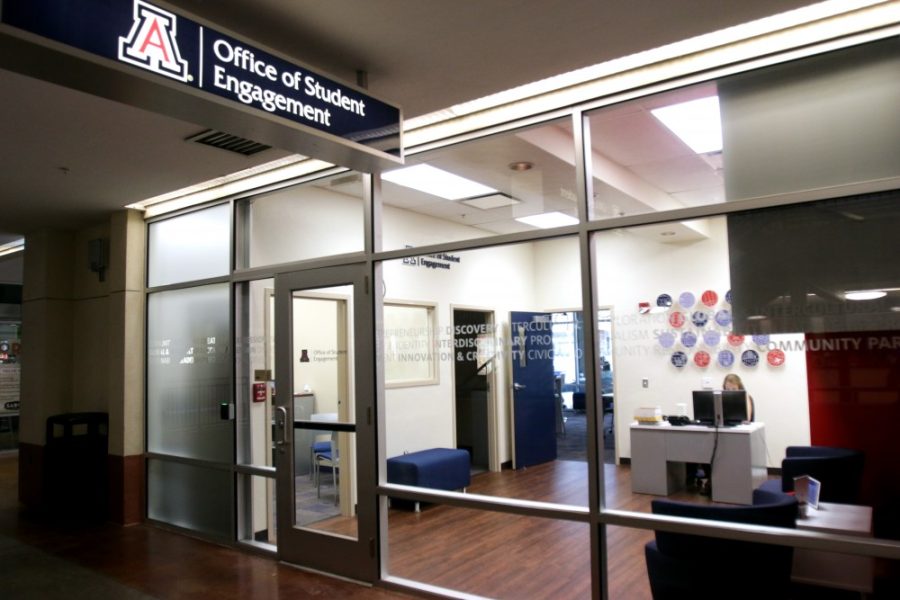100% Engagement is all about helping every graduate listing an Arizona degree on their resume achieve their goals by offering important professional and personal development experiences that reach every student.
In a recent opinion, Arizona student Randall Eck made some good points about the responsiveness of 100% Engagement to the challenges students face in gaining these experiences, based on their own involvement. Over the past five years of this initiative, we have listened to many students who are juggling a combination of academics, work and family responsibilities.
Students most appreciate 100% Engagement when an experience helps them address several goals at the same time. This often means having an experience outside the classroom while earning academic credit. Students also want experiences that do not earn credit that are either close to cost-free or that allow them to earn money. Students especially value research and internship experiences with engaged mentors.
To that end, 100% Engagement has created over 50 new courses that include authentic community and industry experiences. These join the over 350 additional existing courses, including internship and directed research courses, where students can get practical experience while earning credit.
RELATED: 100% Engagement is 200% more paperwork
As with any course, faculty determine the assignments for 100% Engagement as they see fit. To be sure, this means 100% Engagement is not 100% consistent. However, while some students have experienced assignments that feel like “paperwork,” most faculty who have chosen to connect their courses devise compelling assignments.
For example, professor Brian Mayer’s Tucson Poverty Workshop course asks students to interview community members experiencing poverty. Students then share their findings at an open forum for concerned community organizations wanting to better serve these people. Mayer studied the effect that sharing work had on students’ experience and their feelings about research in his course.
“What we observed was a moment in the course that matters more than all of the work that preceded it,” Mayer said. “Witnessing that interest and excitement from the community outside the university helped students realize how they could make a difference in the world through research.”
There are a number of new courses, as well as individual opportunities, this semester that don’t involve academic credit. Here are four key ways 100% Engagement can help you get the most out of your Arizona experience.
Need an Internship?
The new 100% Engagement Summer Impact Awards provide $2,500 stipends to support students working unpaid internships with nonprofits or government agencies. In addition, approximately 10 Arizona students will have the opportunity this summer to participate in academic internships with The Washington Center, with program fees and housing fully covered by the university. Attend an information session, offered January, February and March, to find out more.
Or join Design Lab at University of Arizona. This student community receives training in human-centered design strategies while working in teams to respond to real campus and community problems.
Need a short-term project to build your experience?
The Design Thinking Challenge program harnesses student collaboration and creativity to change the world, one problem at a time. Beginning Feb. 6, three challenges offer monetary prizes. Attend one of six upcoming information sessions to learn more.
Need a general education or elective?
These are the newest courses offered thanks in part to support from 100% Engagement. Each centers engagement with community organizations and promise to offer career readiness, research and/or civic engagement skills.
ART/LAW 360 Visualizing Justice (Prof. Butler & Leslie)
ENG 430 User Experience Research (Prof. Shivers-McNair)
RCSC 150B1 Consumers, Environment and Sustainability (Prof. Kennedy)
LS150C1 Education and Diversity (Prof. Smith)
CHS/SOC 497A Building Healthy Communities (Prof. Mayer)
While only courses above the 300 level will result in a special 100% Engagement notation on your transcript, every one of these projects will create great connections and provide experiences students can draw upon in personal statements and job interviews as they pursue future goals.
Come talk to our staff and peers in LifeLab for support in researching opportunities or preparing resumes, letters, personal statements and interview responses showcasing your experiences.
Abra McAndrew serves as Assistant Vice President Access, Engagement and Opportunity. She leads Student Engagement & Career Development as well as the University’s college access and continuing education initiatives.









